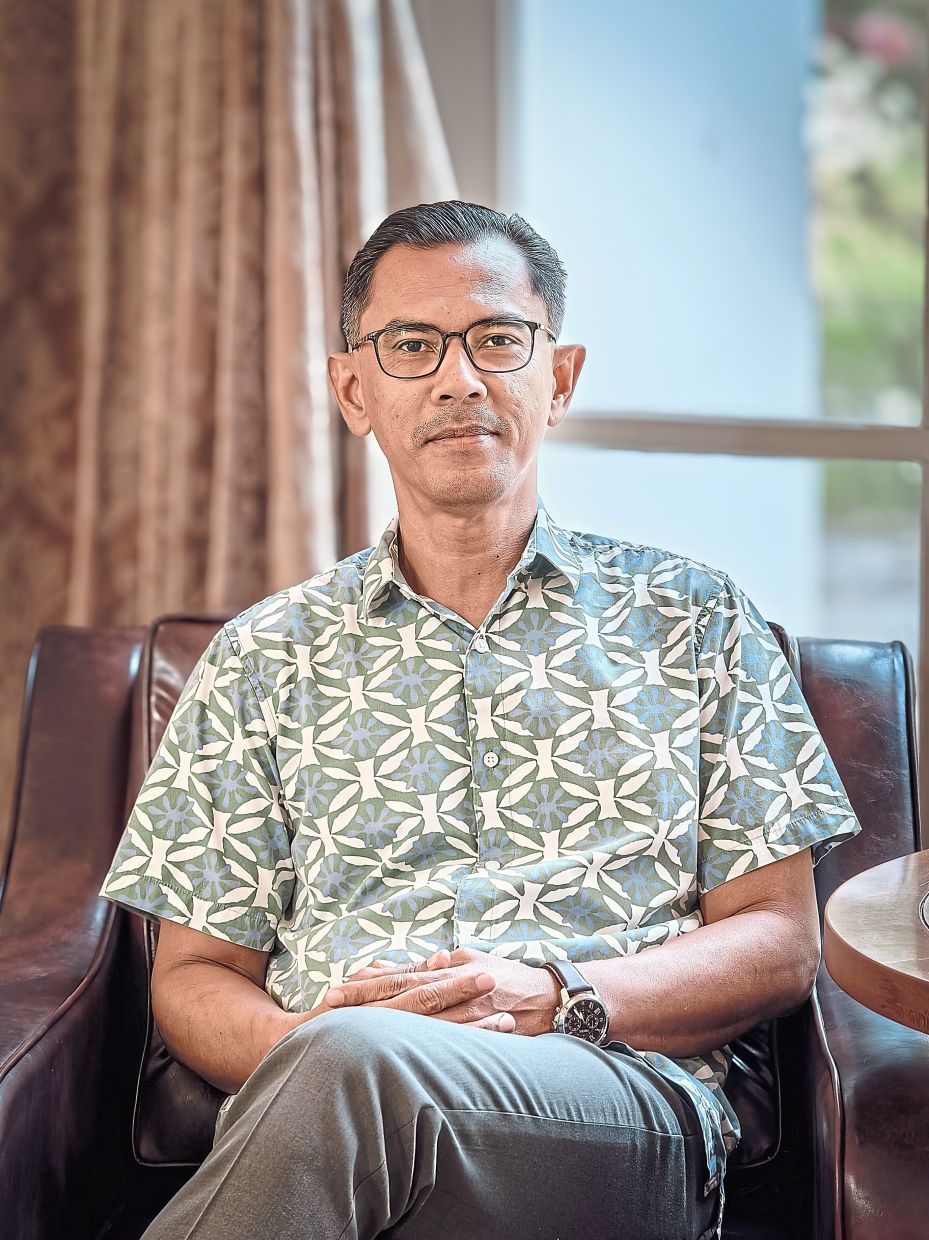Today's travellers are more mindful of tourism’s environmental impact, with many opting for holiday itineraries and tours that are considered more sustainable and “green”.
Some also choose to stay in hotels that embrace sustainable practices or carry green certifications from notable and recognised organisations.
According to Booking.com’s Sustainable Travel Report 2023, 76% of global travellers want to travel more sustainably, and over half those surveyed are happy to pay more for eco-friendly options. (The report has insights gathered from over 33,000 travellers across 35 countries and territories around the world.)
The drive towards sustainability in Malaysia’s hospitality sector is also gaining momentum, with the Tourism, Arts and Culture Ministry (Motac) making it a key focus of its overall plans. Sustainability is a major highlight of the Visit Malaysia 2026 campaign, too, showing the country’s commitment to green tourism.
In alignment with the nation’s eco goals, the Malaysian Association of Hotels – in partnership with SGS Malaysia and Sai Matrix Integrated – introduced its ESG certification for hotels and resorts in 2024.
This certification, approved by Motac, supports Malaysia’s National Tourism Policy 2020-2030. To get certified, industry players must undergo comprehensive training, a pre-assessment and also develop a viable sustainability action plan.
This initiative is a crucial step in positioning Malaysia as a leading ecotourism destination.

Small steps
Elaine Lee, 27, makes it a priority to stay in eco-friendly accommodations whenever she travels. “I’ve observed a global trend of hotels adopting green initiatives, such as providing bamboo toothbrushes and combs, and opting for plastic-free packaging,” she said.
One such hotel is Sheraton Kuching in Sarawak. Its general manager, Charlene Chan, said the hotel is currently in the process of applying for the ESG certification. In the meantime, it has already implemented several sustainability initiatives, like replacing traditional room toiletries with “eco-conscious” alternatives.
“Besides bamboo toothbrushes, we have also started using biodegradable packaging for takeaway items (in our restaurants),” Chan said.
These kinds of initiatives address the mounting concern of plastic usage and pollution, which pose significant threats to the environment.
Based on a report by Greenpeace (an international campaigning network that focuses on environmental issues), Malaysia ranks among the highest in plastic consumption, prompting the government to actively phase out single-use plastics (one of the worst pollutants in our oceans that’s also filling up landfills). One initiative is to encourage F&B establishments to replace plastic straws and cups with more sustainable options ... or just do away with straws altogether.

At Temple Tree Resort Langkawi in Kedah, sustainability has always been a core focus, said resort manager Irene Vairo. The resort moved to using biodegradable straws – which are made from rice and tapioca – several years ago as part of its efforts to reduce environmental footprint.
Of course, plastic straws are just one facet of a larger issue. Recognising the negative impact of single-use plastics, the resort has stopped offering plastic water bottles in its rooms, opting instead for reusable glass bottles. Filtered water stations are placed around the property.
“These efforts not only reduce plastic consumption but also foster a more thoughtful approach to water usage,” Vairo shared.
Likewise, The Danna Langkawi has also been making subtle changes to its amenities over the years to be more green. Today, it continues to expand its sustainability efforts which includes providing refillable glass bottles in guest rooms, replacing single-use mini toiletries with reusable dispensers, and keeping a thriving herb garden on property for use in its restaurants.
More recently, the resort introduced wooden key cards, replacing those flimsy, plastic ones. “This helps minimise landfill contributions and promote eco-responsibility,” said cluster general manager Hafiz Hashim.
Like the other two hotels, The Danna has also made progress in reducing its reliance on single- use items. The resort now has an in-house water bottling plant, so there is no longer a need for them to place disposable plastic bottles in guest rooms.
Regular beach clean-ups are also conducted to protect Langkawi’s cherished marine ecosystems.

Waste less, care more
Waste reduction is a shared commitment among the three properties. Each one has introduced guest education programmes focusing on sustainable habits, such as recycling and reusing.
Temple Tree Resort, for instance, has a towel reuse programme, where guests are encouraged to hang their towels if they prefer not to have them replaced daily – reducing water and energy use.
“We want our guests to enjoy a comfortable stay at Temple Tree while also becoming more aware of their environmental impact,” Vairo said.
“By introducing them to these practices, we foster a culture of sustainability.”
At Sheraton Kuching, meanwhile, innovative waste management solutions are taking shape. For the hotel, Chan said, recycling starts from the room, with the placement of a recycling bin in each one. With these bins, guests are able to place their rubbish into the right compartment (recyclables and non-recyclables) of the bin.
Besides that, Sheraton Kuching is collaborating with local suppliers to repurpose used cooking oil into biofuel for machinery. Additionally, coffee beans used in the hotel are sourced from plantations that practise sustainable agriculture, promoting soil health and ultimately, long-term viability.
“We have a responsibility to safeguard our planet and preserve it for generations to come,” Chan emphasised.

Similarly, The Danna Langkawi has joined forces with local enterprises to champion textile upcycling through its “Sustainability Meets Sophistication” initiative, transforming discarded hotel linens into beautifully-handcrafted pouches.
These are then sold at the hotel, and profits go to the people who made the products.
“This is a creative effort to reduce waste while empowering the local community,” said Hafiz.
“We provide platforms for inclusive and sustainable growth.”
The resort also sources fresh produce and seafood from the island’s local suppliers – an approach that celebrates Langkawi’s fishing and agricultural communities, while reducing emissions from long-distance sourcing, he explained.

Earth Day activities
Inspired by Langkawi’s status as a Unesco Global Geopark, The Danna makes it a mission to protect the island’s natural wonders.
This resort takes part in Earth Hour, an annual worldwide event that calls for individuals and organisations to turn off their lights for one hour in support of environmental action and climate change awareness.
As part of this year’s Earth Hour (held this year on March 22), the resort turned off non-
essential lights across its premises. Guests were invited to participate by switching off lights in their rooms and enjoying a warm, candlelit gathering in the resort’s lobby instead.
“It is a simple act that shows how small steps can make a big difference when we work together towards a greener future,” shared Hafiz.
Lee, meanwhile, had the opportunity to participate in the global Earth Hour movement during her recent stay at a coastal resort in Phuket, Thailand. She described the experience as “powerful”, as she spent the quiet hour alongside guests from around the world.
As for Sheraton Kuching, the hotel will celebrate Earth Day – which falls on April 22 every year – for the first time since opening its doors last year. Aware of the growing environmental challenges, the hotel has planned a series of environmentally-focused activities designed to inspire its team members to take action.
One of the key events is a clean-up hike through the forest near Sri Maha Mariamman Temple in the city. “Sheraton Kuching associates will participate in collecting litter along the trail to maintain the natural beauty of the area,” Chan said.
Aside from that, a tree planting session is scheduled, to promote biodiversity and contribute to the restoration of local habitats.
Looking ahead, Chan said that for future sustainability celebrations, the hotel aims to expand its efforts by organising larger-scale initiatives that include guest participation.

Smart sustainable living
Earth Day is a valuable reminder of our environmental responsibilities, but creating lasting, positive change requires consistent year-round effort.
At Sheraton Kuching, staff receive regular training to stay mindful of water and electricity consumption. “Resource efficiency is an integral part of the hotel’s daily operations,” said Chan.
“Reducing energy and water footprint is just as important as cutting down carbon footprint.”
The hotel has installed smart thermostats that automatically adjust based on room occupancy, along with energy-efficient lighting systems to ensure power is conserved when not needed. Non-essential equipment is powered down when not in use.
“We are also exploring options to integrate renewable energy into our operations,” she added.
Every room at Temple Tree Resort, meanwhile, includes a note encouraging guests to be conscious of their energy and water consumption. Vairo shared that the resort is looking into solar energy solutions as a way to lower its long-term carbon footprint.
“Small gestures can go a long way in promoting responsible travel,” she added.
Effective water management is another priority across these eco-conscious properties.
Temple Tree Resort uses water-saving technologies at its premises. It has equipped all guest bathrooms with low-flow faucets and showers – fixtures commonly used to minimise water waste.
The resort also “uses efficient irrigation systems and harvests rainwater” to maintain its lush gardens.

Chan emphasised the importance of preventive maintenance at her hotel. “Regular inspections are essential for detecting and repairing leaks promptly,” she explained, adding that this proactive approach not only conserves water but also improves operational efficiency.
As Malaysia’s hospitality industry evolves, these resorts show that sustainability and guest satisfaction can go hand in hand.
Responsible tourism is definitely a shared responsibility, and travellers have a vital role to play in supporting sustainable hospitality, said travel enthusiast Lee.
“Even small actions, like reusing towels or opting into a hotel’s ‘green programmes’, can have a meaningful impact,” she shared. (Some hotels charge a small fee for “carbon tax” or something similar, but guests are free to either opt in or out of these green programmes.)
For Lee, travelling responsibly goes beyond choosing eco-friendly accommodations. It is also about how she gets there, what she eats, and the choices she makes along the way.
“Being an eco-conscious traveller isn’t just a trend – it’s become the new norm,” she concluded.





